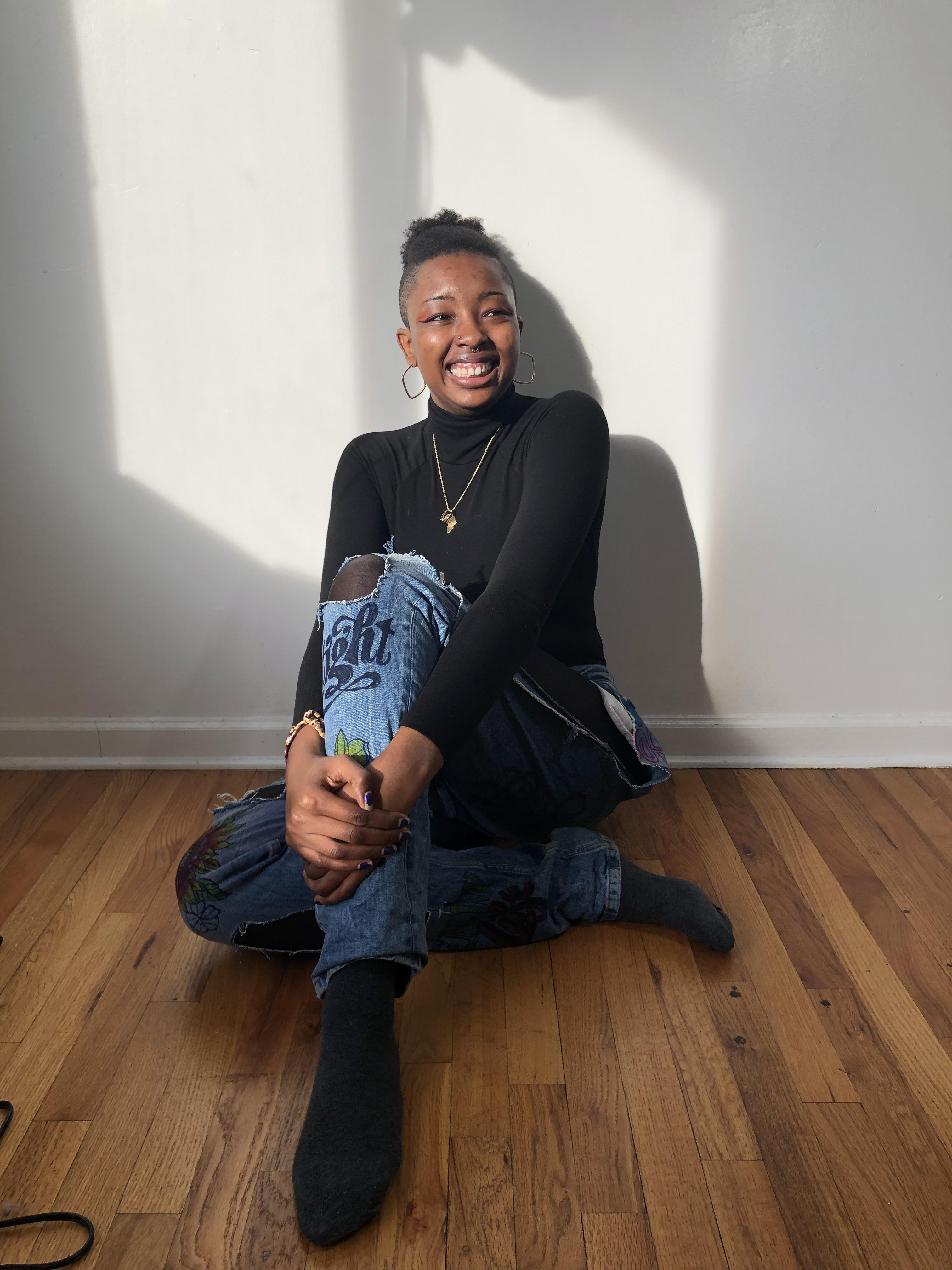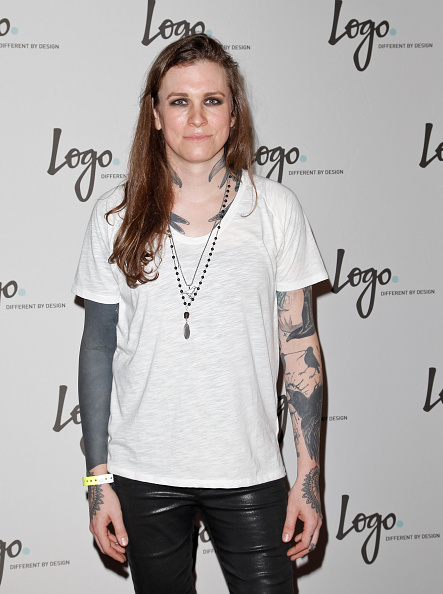Going through airport security is never enjoyable, but for some the experience is far worse than others.
Transgender travelers are “particularly vulnerable to invasive searches at airport checkpoints,” according to a new ProPublica report. The report, which reviewed complaint data from Transportation Security Administration’s website and collected 174 anecdotal accounts, found that trans and non-binary people can be forced to discuss their genitals with TSA agents in non-private areas, are sometimes subject to invasive pat-downs by officers they don’t consent to, forced to reveal their genitals to TSA agents, or otherwise humiliated following full-body scans.
Videos by VICE
The TSA began using full-body scanners in 2010 in order to check for non-metal weapons. Unlike metal detectors, however, these scanners require agents to scan travelers as either male or female, something that is determined by a TSA agent’s perception of travelers’ appearance. The scanner scans male and female bodies differently, based on cis anatomy. Yet, according to the TSA, “Screening is conducted without regard to a person’s race, color, sex, gender identity, national origin, religion or disability.”
In at least one case the publication reviewed, after being scanned TSA reportedly told one trans woman that she would not be allowed to board her flight unless she consented to a pat-down by a man.
To many trans and non-binary people, the report is not at all surprising. Though trans people make up less than 1 percent of the U.S. population, over 5 percent of online complaints against TSA from January 2016 to April 2018 dealt with the screening of trans people. In February, after urging from Congress, the TSA rolled out online “transgender awareness” training for its employees who screen travelers, but some trans and non-binary people say they have yet to see any improvements.
We spoke to seven trans people about the horrible and ridiculous experiences they’ve had with airport security.
Cris Cardenas, 29, he/him

I’ve never been given a full-body search but do experience extreme anxiety leading up to my travels. […] When going through a body scanner, they immediately label me as a male so when the scan is done, there is always a spot on the screen signaling an anomaly with my chest. I’ve been through this so many times, I know what to tell TSA officers confidently, and as soon as it happens, but the responses are always varied. The first few times, I was so anxious, I had a hard time explaining myself properly so it would cause more confusion.
Most recently, at LAX, I went through the scanner, popped out on the other side and said, “It’s popping up that way because I’m transgender and wearing a chest binder, which is like a girdle. If you scan me as a woman, it would come out clear.” There was a long pause and the male officer said, “So who do you want to pat you down?” I suggested scanning me again if they didn’t mind and the male officer said, “So you prefer to be scanned as a woman?” It was 5:30 in the morning, and I was feeling extremely over it and I said, “Not really but y’all don’t know how to scan outside of the binary so you’re going to have to…” I’m pretty lucky they didn’t get mad at [me] but they did scan me as a woman and as predicted, my screen then flashed a green “clear.” As I was grabbing my stuff off the conveyor belt, the female officer came up to me and I immediately had a wave of bad anxiety because I thought maybe they were mad at my comment, but she thanked me for explaining so thoroughly to them and said I helped educate them in that situation. I said, “No problem,” at the moment but after I had time to calm down, my first thought was Why do I have to be the one to educate them? I often wonder why my negative experience gets to become a teaching moment for them when their job should provide the training.
Briannah Hill, 22, they/them

All, if not most, of my flights are in the morning or really late at night, so I’m usually presenting masculine in my outward appearance. This leads to TSA officials asking if I’m a boy or girl so they can determine which person to pat me down. This usually takes more time than needed, and it’s super uncomfortable standing there. I usually get frustrated at them, so I try and dress more feminine for the ease of getting through it—which sucks because I’m more comfortable looking masculine or playing with androgyny in my appearance. It always feels like I have to accommodate someone else’s belief of gender for my safety.
I wanted to get my ID changed to an X because the state where I’m from had that option, but I just know that will cause multiple problems on top of my appearance that I don’t think I’m ready for in the airport. It’s pretty disappointing that this fear is holding me back from what I actually want.
Laura Jane Grace, 38, she/her

I would say nine out of ten times that I’ve gone through a ProVision L3 body scan machine, I’ve been flagged for having an “abnormality in the groin region”… In my opinion, there’s no way this isn’t direct, targeted harassment of trans people. If it’s someone’s job to sit there behind a closed door and watch the body scans of people as they go through the machine, and this person is flagging you because the shape of your flesh doesn’t align with their idea of how a body should look, what else could it be? Neither my tits nor my dick are made of metal. If you’re taking a full 3D scan of a body, it should be pretty obvious which parts are attached and part of a person.
Then after being flagged, TSA agents always, always seem confused as to who should be giving me a pat down, because they don’t know how to interpret my gender. Not too long ago, after I was finished getting patted down, I heard a TSA agent turn to another and say “this is why I hate my job.”
Ever since I got TSA Precheck, it’s been fine. With TSA Pre, you don’t have to pass through the body scanner, just a metal detector, and you leave on your shoes, leave your laptop in your bag. It makes the security process a lot easier.
James Factora, 21, they/them

Every time I have to go through the Gender Tube there’s always a moment of hesitation that I can feel from the TSA agents when they have to decide whether to scan my body as a man’s or a woman’s. Sometimes, I can hear them quietly talking among themselves as they speculate on my genitals. Sometimes they’ll ask me if I have anything in my pockets or some other random inquiry presumably in an attempt to parse my voice, which is equally as androgynous. The worst times are when my chest is flagged as an anomaly and a male TSA agent feels me up. It’s a violation of consent that feels awful regardless of sexuality, I’m sure, but being a butch lesbian with chest dysphoria makes it worse, especially while knowing the history of butches’ bodily autonomy being violated by the state. When I was more feminine presenting, going through TSA was annoying, but didn’t cause me any anxiety. As soon as I cut my hair and started dressing more masculine, though, all of the above started happening pretty much immediately.
Pet, 26, she/her

I have traveled internationally three times in the past year. Each time, TSA has selected me for a pat-down. They may as well have “penis” and “vagina” buttons they press—if you do not conform to the TSA agent’s expectation of what your genitals should be, they will single you out and pat you down.
The last time this happened to me, the TSA agent recognized it as discriminatory and was taken aback that she needed to participate in this grotesque process. She complained to her supervisor and was extremely apologetic.
TSA’s website’s tiny Civil Rights page states that they do not discriminate based on gender OR sex. This is clearly patently false.
Some will say this process is “to make sure a woman’s cock is not a bomb or explosive of some sort.” It’s interesting and crazy-making, as a trans woman, to have a government agency making determinations about whether I “pass” or not. Next time I go through airport security, if I am not singled out to be manhandled by an agent, I will wonder whether they see me as a man. TSA calls this whole process “clearing an alarm.” It’s galling, but not surprising that, as a trans woman, my genitals cause alarm. I know this already, but it’s nice to have TSA confirm it.
Gwen Smith, 52, she/her

I’ve had a mixed bag when it comes to security. Most experiences have been fairly neutral. I’ve even had one really positive one where a Covenant Aviation Security ([San Francisco Airport] doesn’t use TSA) agent and I ended up in a nice conversation about their own trans niece. That said, I am usually flagged for additional checks.
I’d say the worst experience I ever had was flying out of Logan International Airport in Boston two years ago. I just approached the body scanner when the TSA agent, with a quizzical look on his face, said, “I’m not trying to be rude but, uh, what should we scan you as?” I said female. The machine flagged me and I was directed to wait for a secondary scan. A female TSA agent was eventually brought over, and she examined my chest by hand. I don’t have any implants or anything, nor a metal underwire, so I am really unsure what they thought they’d find.
For an agency that manages to miss actual weapons 70% of the time, I would think that my body would be the least of their concerns. Also, a machine that offers a binary gender check like the body scanners do is never going to be able to get things right, ever. It’s just a mess.
Ameera Khan, 23, she/her

Oftentimes, I have walked through a scanner and the machine picks up the metal in my bra hooks, and then I have to be unnecessarily patted down. It’s inefficient, annoying, and invasive. Had I been a victim of physical assault, which many transgender folks are due to the nature of our social status, this would likely be a highly triggering experience.
Frequency of negative TSA experiences related to my transness are hard to gauge, because I have gone through security pretending to be male due to my transphobic family’s presence with me during travel, and they don’t want me presenting female publicly. This has reduced recently due to my newfound financial independence and the subsequent freedom allowing me to present how I want without worrying about their power over me. However, I haven’t traveled recently to countries like India or Bangladesh, where there are separate lines and scanners for women and men, and my sex marker on my passport still says “Male” so no doubt I would be subjected to major dysphoria, stares, and possibly harassment in that situation—as is the case based on the stories my trans friends who’ve been in that situation tell me.
I’m in the process of transitioning but I don’t pass. I’ve had an awkward experience when a TSA agent mentioned that his ‘son’ was suicidal, and then once his ‘son’ became a daughter, she was much happier. He was likely trying to be nice to me, but it ended up making me feel singled out because I was already on edge walking through security, as I usually am, due to racial profiling of brown Muslims combined with my transness. Intersectionality makes security more anxiety-inducing rather than just a headache. A smile, acknowledgment, or statement reassuring me that Islamophobia and transphobia would not affect the treatment I’d receive from the officer, would have been much better on my already taxed nerves. (Even though we know that top-down Islamophobia and transphobia affect the administrative policies TSA must follow, hint hint, the Trump administration’s Muslim ban, transphobic policies, etc.) Most of the negative treatment is non-verbal, when I see people’s shoulders or facial expressions stiffen upon seeing me. This sets the tone for the rest of the interaction as ‘strictly professional’, like the tone of ‘random’ security checks Muslims often complain about.




